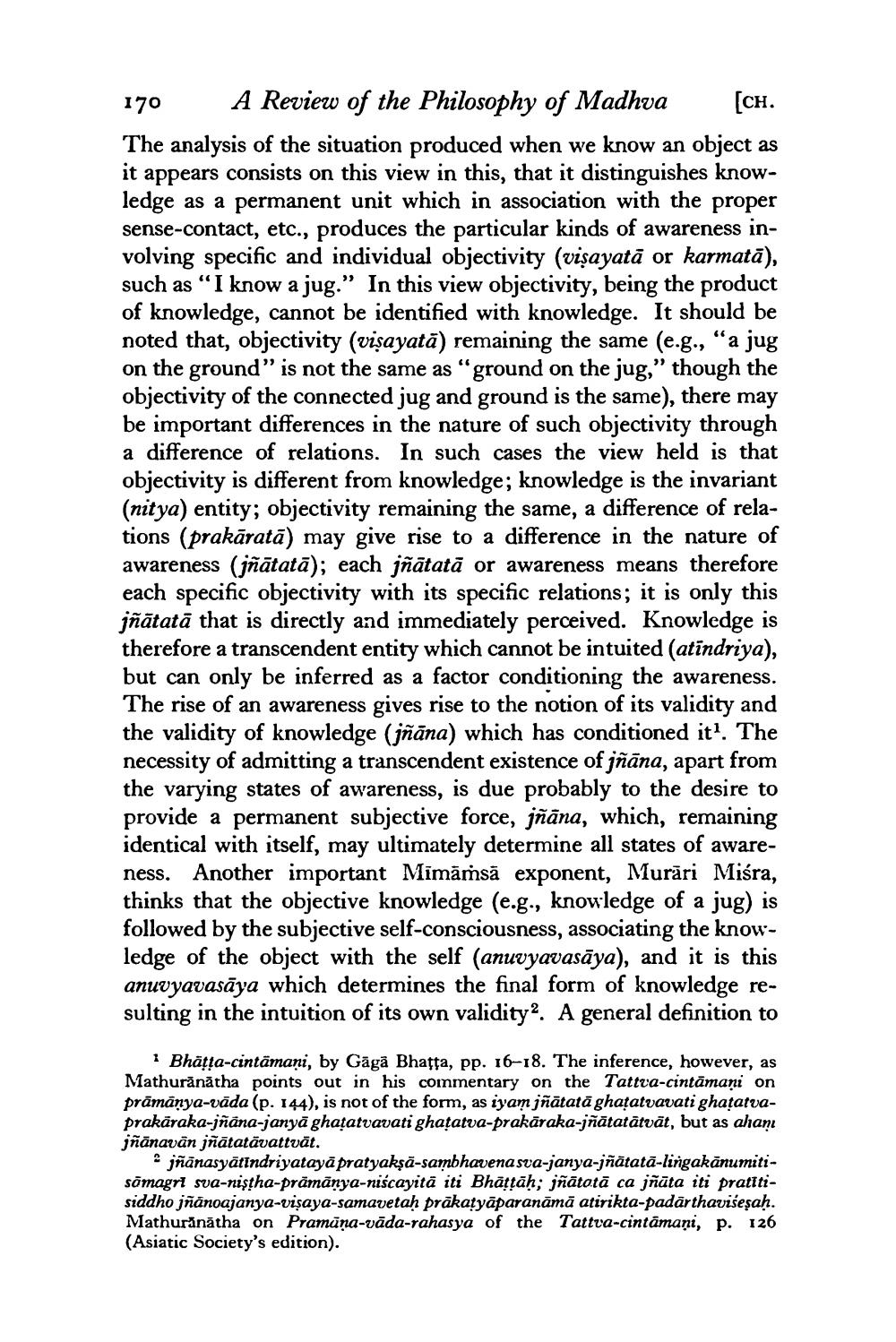________________
170 A Review of the Philosophy of Madhva [CH. The analysis of the situation produced when we know an object as it appears consists on this view in this, that it distinguishes knowledge as a permanent unit which in association with the proper sense-contact, etc., produces the particular kinds of awareness involving specific and individual objectivity (vişayatā or karmatā), such as “I know a jug.” In this view objectivity, being the product of knowledge, cannot be identified with knowledge. It should be noted that, objectivity (visayatā) remaining the same (e.g., "a jug on the ground" is not the same as "ground on the jug," though the objectivity of the connected jug and ground is the same), there may be important differences in the nature of such objectivity through a difference of relations. In such cases the view held is that objectivity is different from knowledge; knowledge is the invariant (nitya) entity; objectivity remaining the same, a difference of relations (prakāratā) may give rise to a difference in the nature of awareness (jñātatā); each jñātatā or awareness means therefore each specific objectivity with its specific relations; it is only this jñātatā that is directly and immediately perceived. Knowledge is therefore a transcendent entity which cannot be intuited (atīndriya), but can only be inferred as a factor conditioning the awareness. The rise of an awareness gives rise to the notion of its validity and the validity of knowledge (jñāna) which has conditioned it! The necessity of admitting a transcendent existence of jñāna, apart from the varying states of awareness, is due probably to the desire to provide a permanent subjective force, jñāna, which, remaining identical with itself, may ultimately determine all states of awareness. Another important Mimāṁsā exponent, Murāri Miśra, thinks that the objective knowledge (e.g., knowledge of a jug) is followed by the subjective self-consciousness, associating the knowledge of the object with the self (anuvyavasāya), and it is this anuvyavasāya which determines the final form of knowledge resulting in the intuition of its own validity?. A general definition to
Bhätta-cintamani, by Gāga Bhațţa, pp. 16-18. The inference, however, as Mathurānātha points out in his commentary on the Tattva-cintamani on prāmánya-vāda (p. 144), is not of the form, as iyam jñātată ghatatvavati ghatatvaprakāraka-jñana-janyā ghatatvavati ghatatva-prakāraka-jñātatātvät, but as ahanı jñānavan jñātatāvattvät.
jñānasyātīndriyatayā pratyakşā-sambhavenasva-janya-jñātatā-lingakānumitisomagrt sva-niştha-prāmānya-niscayitā iti Bhättah; jñātotā ca jñāta iti pratitisiddho jñānoajanya-visaya-samavetah prākatyāparanāmā atirikta-padārthavišeşah. Mathurinātha on Pramūna-vāda-rahasya of the Tattva-cintamani, p. 126 (Asiatic Society's edition).




